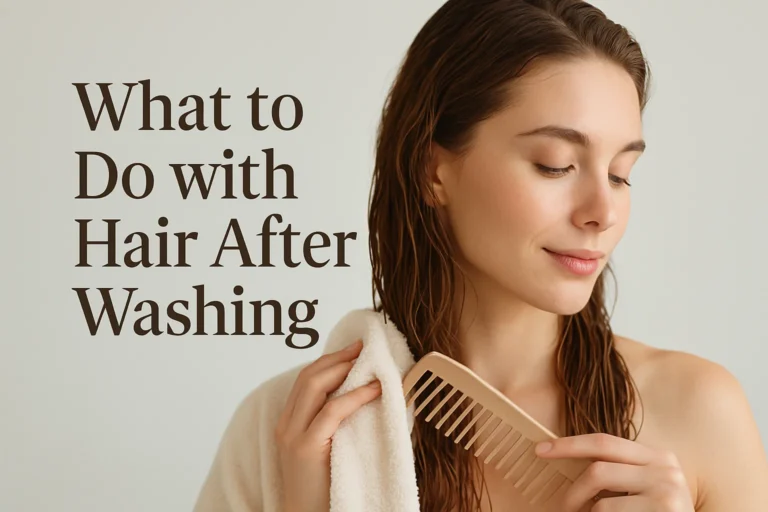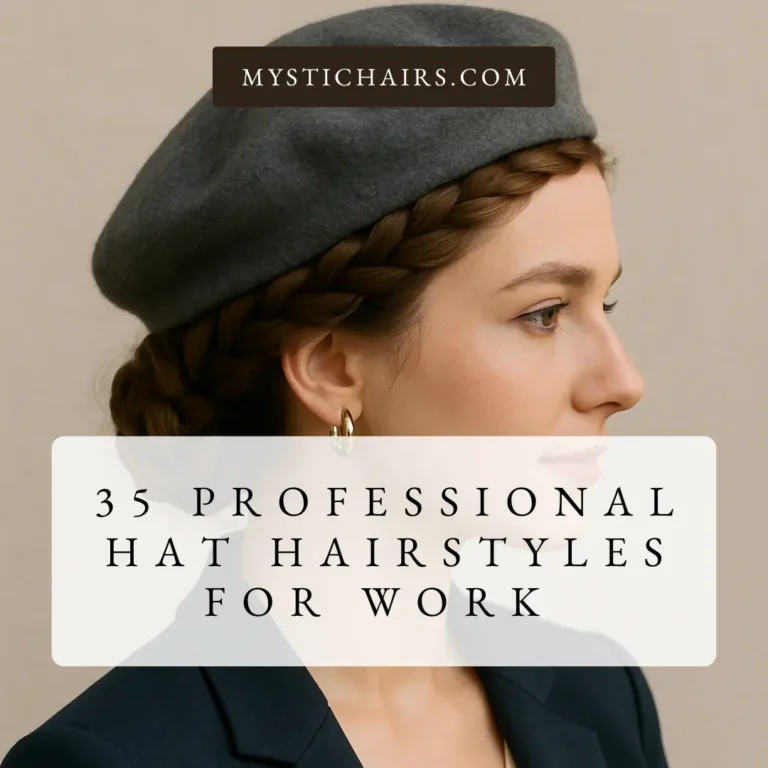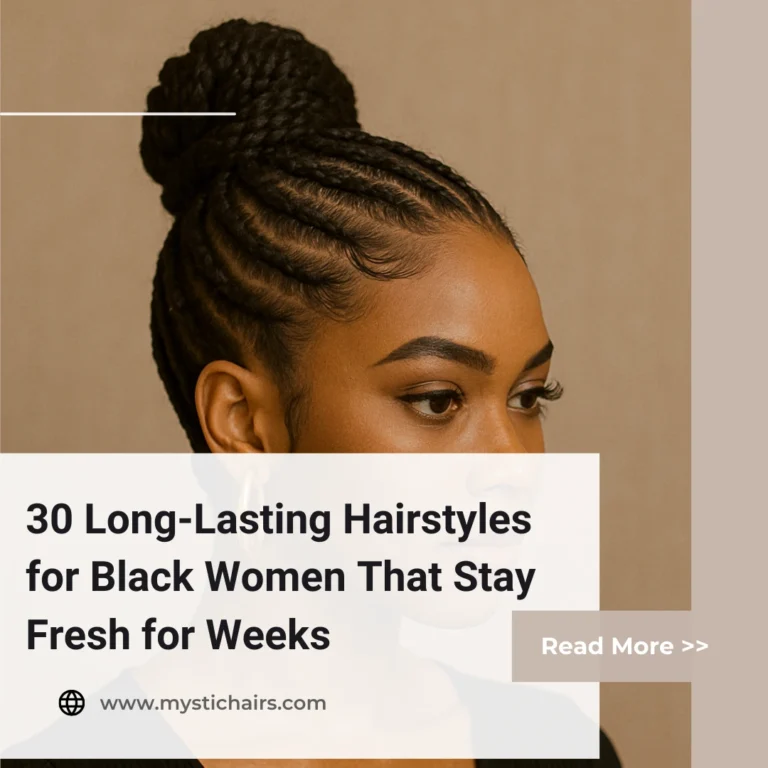How to Get Rid of Dandruff: Effective Tips for a Flake-Free, Healthy Scalp
How to get rid of dandruff is one of the most common concerns for both men and women because dandruff can be uncomfortable, itchy, and embarrassing. Dandruff occurs when the scalp sheds excessive dead skin cells, often caused by dryness, fungal overgrowth (Malassezia), sensitivity to hair products, or even stress and diet. These flakes can appear on the scalp, eyebrows, and even shoulders, affecting confidence and scalp health.
The good news is that dandruff can be controlled and managed with the right scalp care routine. Treating dandruff requires a mix of proper cleansing, targeted products, gentle handling, and sometimes natural remedies.
How to Get Rid of Dandruff
Below are 15 expert tips to help you control flakes, soothe irritation, and restore balance to your scalp.
Use an Anti-Dandruff Shampoo Regularly
The first and most important step in dandruff treatment is switching to a medicated anti-dandruff shampoo. Look for shampoos with active ingredients like zinc pyrithione, ketoconazole, selenium sulfide, or salicylic acid. These ingredients target the root causes of dandruff—such as fungal overgrowth and scalp buildup—while soothing irritation.
When using these shampoos, massage the product into your scalp and leave it on for a few minutes before rinsing. This allows the active ingredients to work effectively. Consistency is key; use the shampoo two to three times a week until symptoms improve, then maintain results by using it as needed. A good anti-dandruff shampoo can dramatically reduce flakes over time.
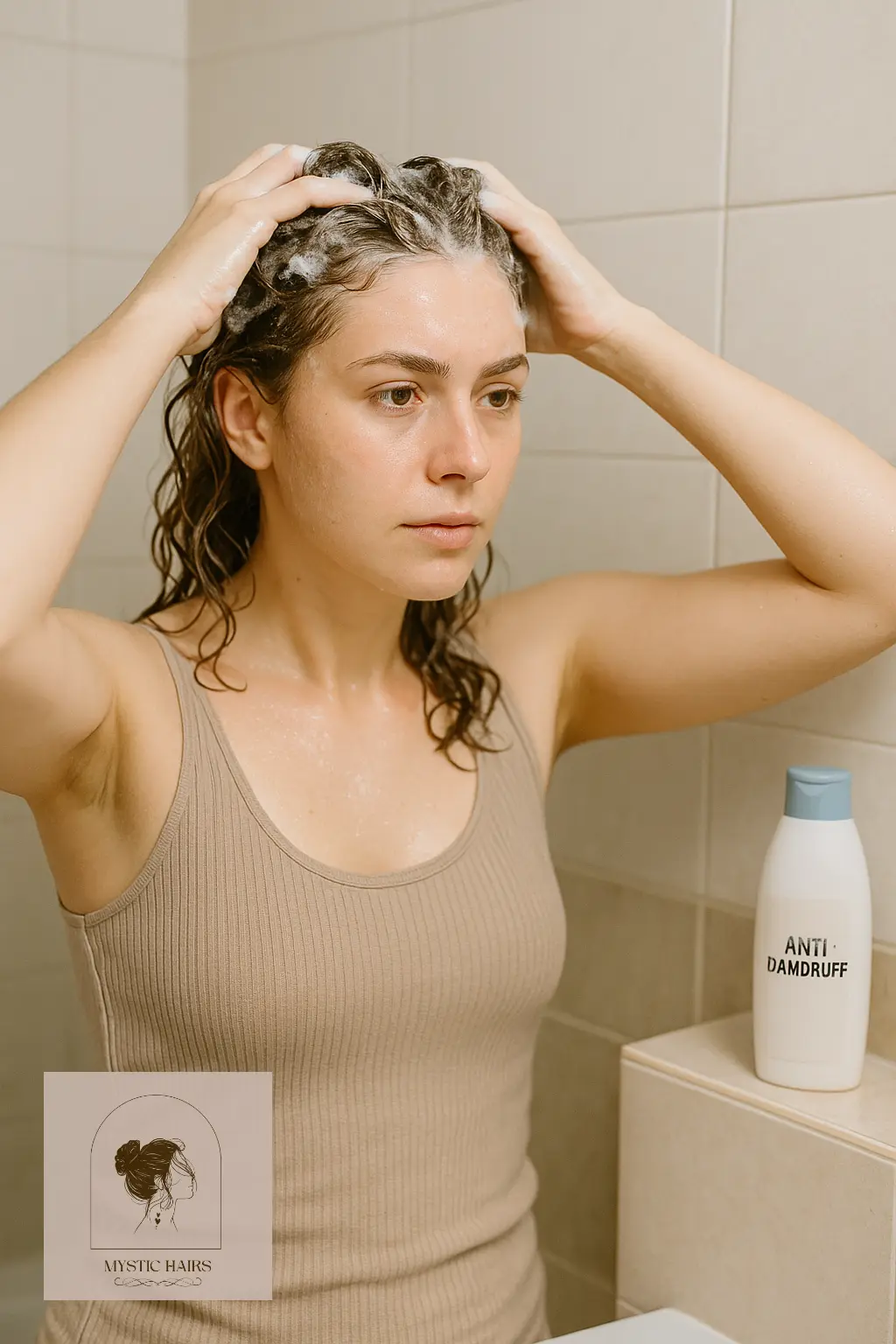
Avoid Overwashing and Harsh Hair Products
Many people think that washing hair more often will solve dandruff, but overwashing can actually make it worse. Frequent washing with harsh shampoos strips the scalp of its natural oils, leading to dryness and irritation. This dryness causes the scalp to produce even more flakes, creating a cycle that’s hard to break.
Choose gentle, sulfate-free shampoos on non-treatment days and avoid products with strong alcohols or synthetic fragrances, which can worsen irritation. A balanced scalp care routine will cleanse your scalp without stripping it of essential moisture, making it easier to maintain a flake-free scalp.
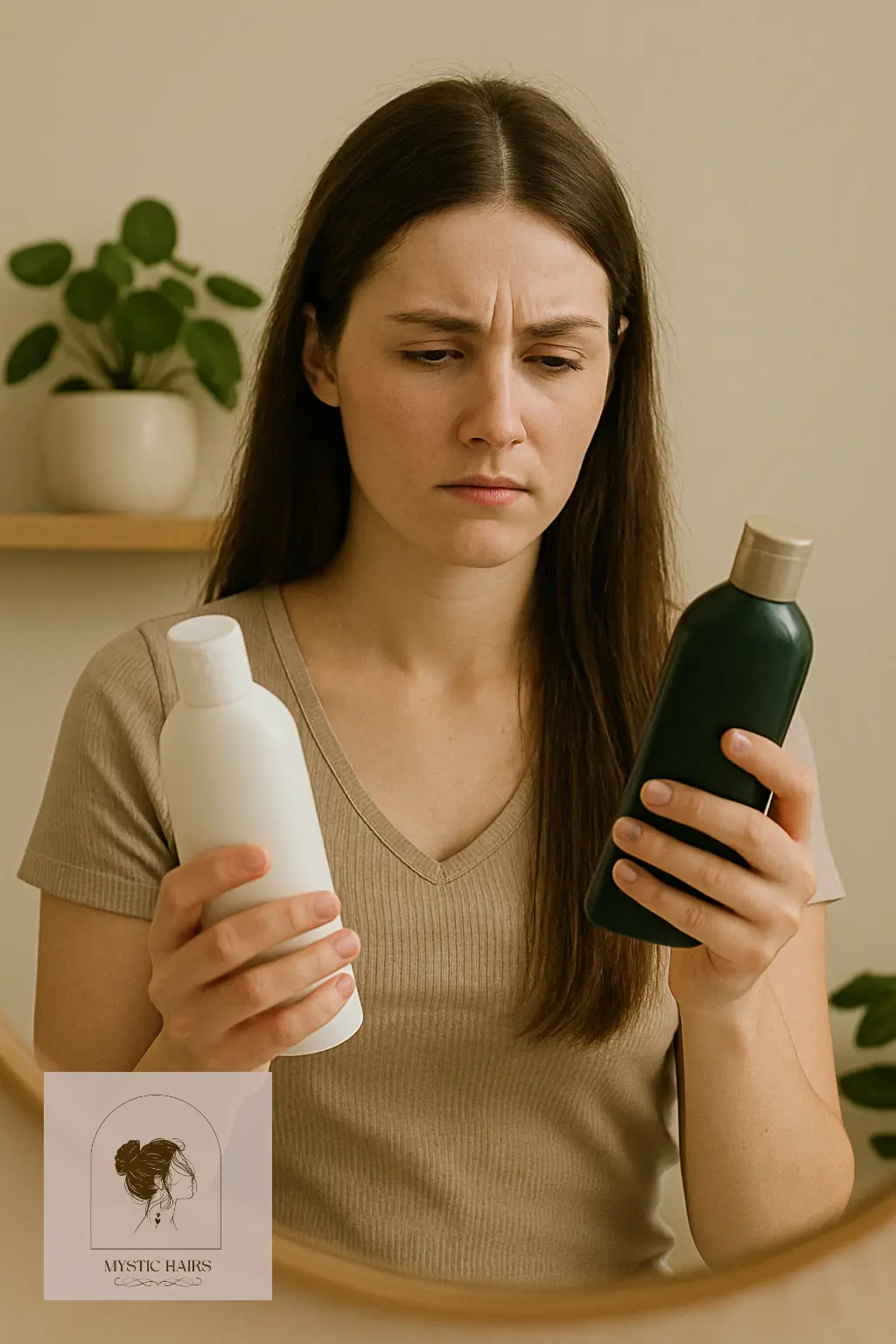
Keep Your Scalp Hydrated
Dryness is a common trigger for dandruff. If your scalp is flaky due to a lack of moisture, adding hydration back is essential. Using lightweight, non-greasy oils like coconut oil or jojoba oil can help restore balance. Apply a few drops to your scalp once or twice a week, massage it in, and leave it on for 20–30 minutes before washing.
Hydrated skin sheds less and feels more comfortable. Maintaining a balance of moisture ensures that your scalp stays calm, less itchy, and less prone to dandruff flakes.
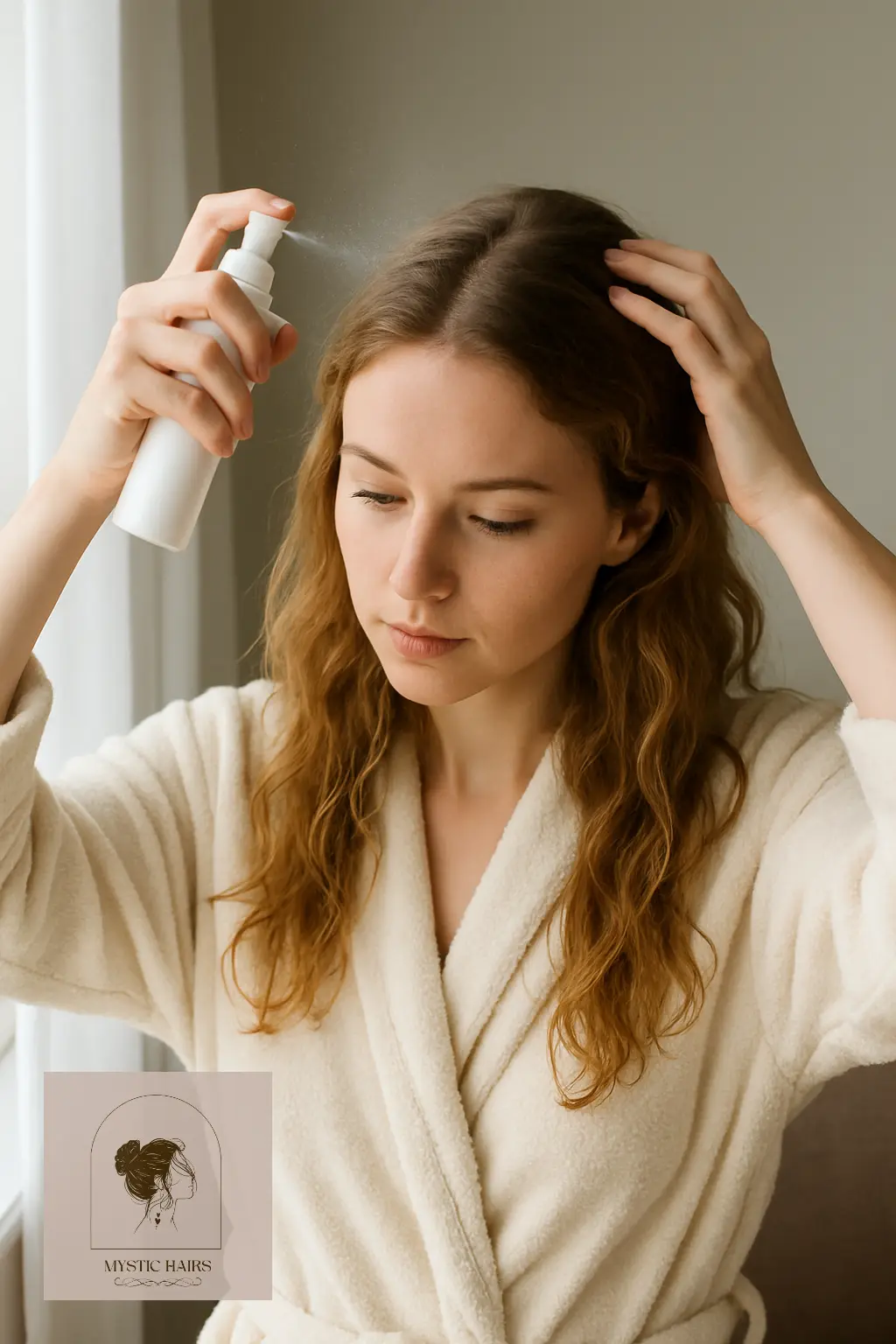
Practice Regular Scalp Exfoliation
Just as your skin benefits from exfoliation, so does your scalp. Dead skin cells, product buildup, and excess oil can create an environment where dandruff thrives. Incorporate a gentle scalp scrub or exfoliating treatment once every two weeks to remove buildup and promote better absorption of shampoos.
Be sure to choose mild scrubs or make natural versions at home using sugar and olive oil. Avoid being too harsh; gentle massaging helps stimulate blood flow while removing debris without irritating the scalp.
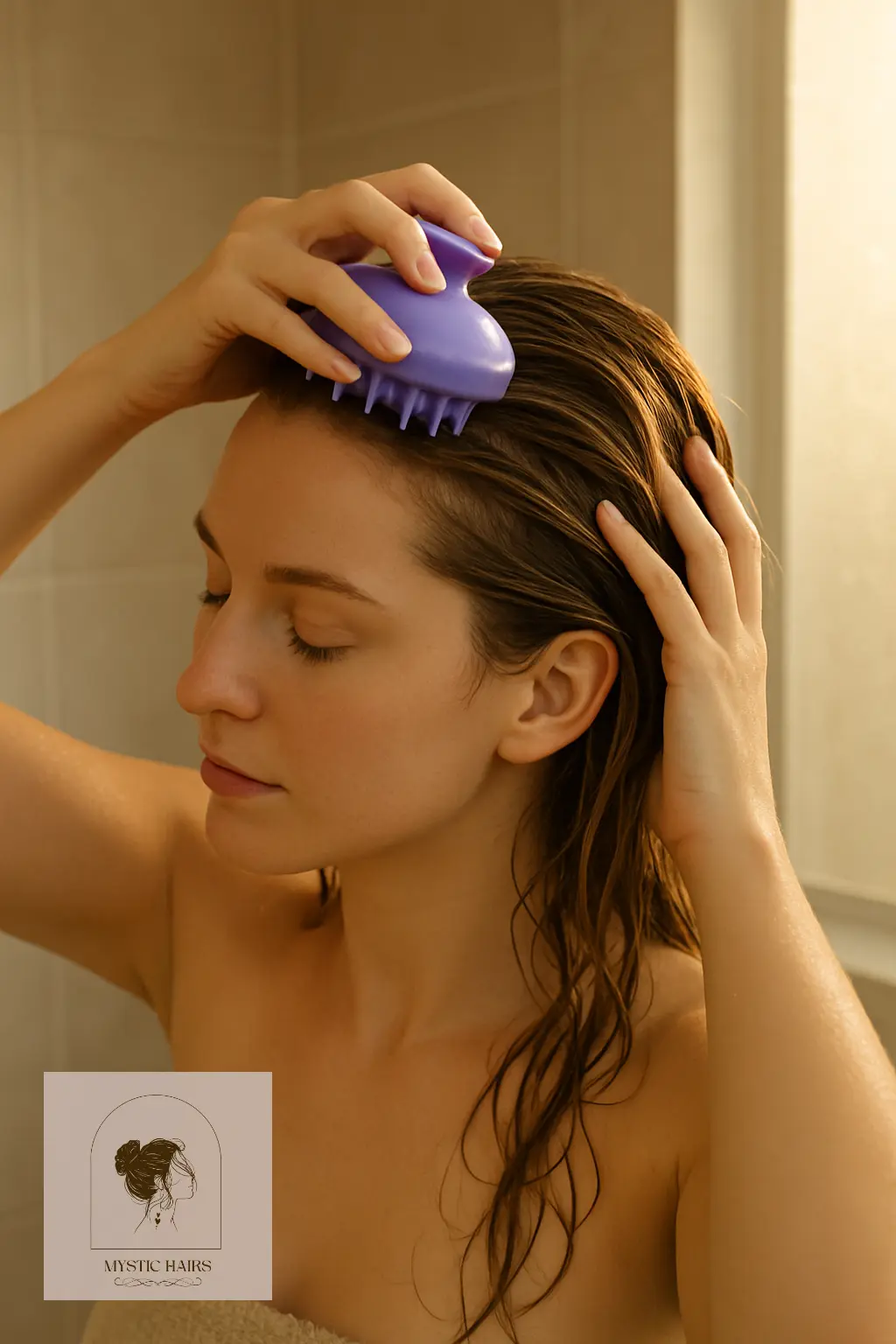
Manage Stress for a Healthier Scalp
Stress is a known trigger for dandruff flare-ups. When you’re under stress, the body produces hormones that can disrupt the balance of yeast and oil on the scalp, leading to more flakes and itchiness. Managing stress with regular activities like yoga, meditation, or even a daily walk can significantly help control dandruff.
A calm mind directly impacts your scalp’s health. This is why stress management is considered an important part of any dandruff control plan.

Once your scalp is clear, learn how to tame flyaways with these expert tips on how to reduce frizz in hair.
Improve Your Diet for Scalp Health
A poor diet lacking in vitamins, minerals, and essential fatty acids can make dandruff worse. Include foods rich in omega-3 fatty acids, zinc, B vitamins, and probiotics in your diet. Salmon, walnuts, flaxseeds, spinach, yogurt, and fresh fruits and vegetables nourish your scalp from within.
Proper nutrition ensures that your scalp has the nutrients it needs to remain healthy. Over time, a balanced diet can reduce dryness, irritation, and flaking naturally. Think of your meals as part of your home remedies for dandruff.

Avoid Sharing Combs, Towels, and Hair Accessories
Dandruff may not be contagious, but scalp infections and fungi that worsen it can spread through shared personal items. Always use your own hairbrush, comb, towel, or pillowcase. Keeping these items clean reduces the chances of reinfection and irritation.
This small step is often overlooked but is an essential part of a healthy scalp care routine.
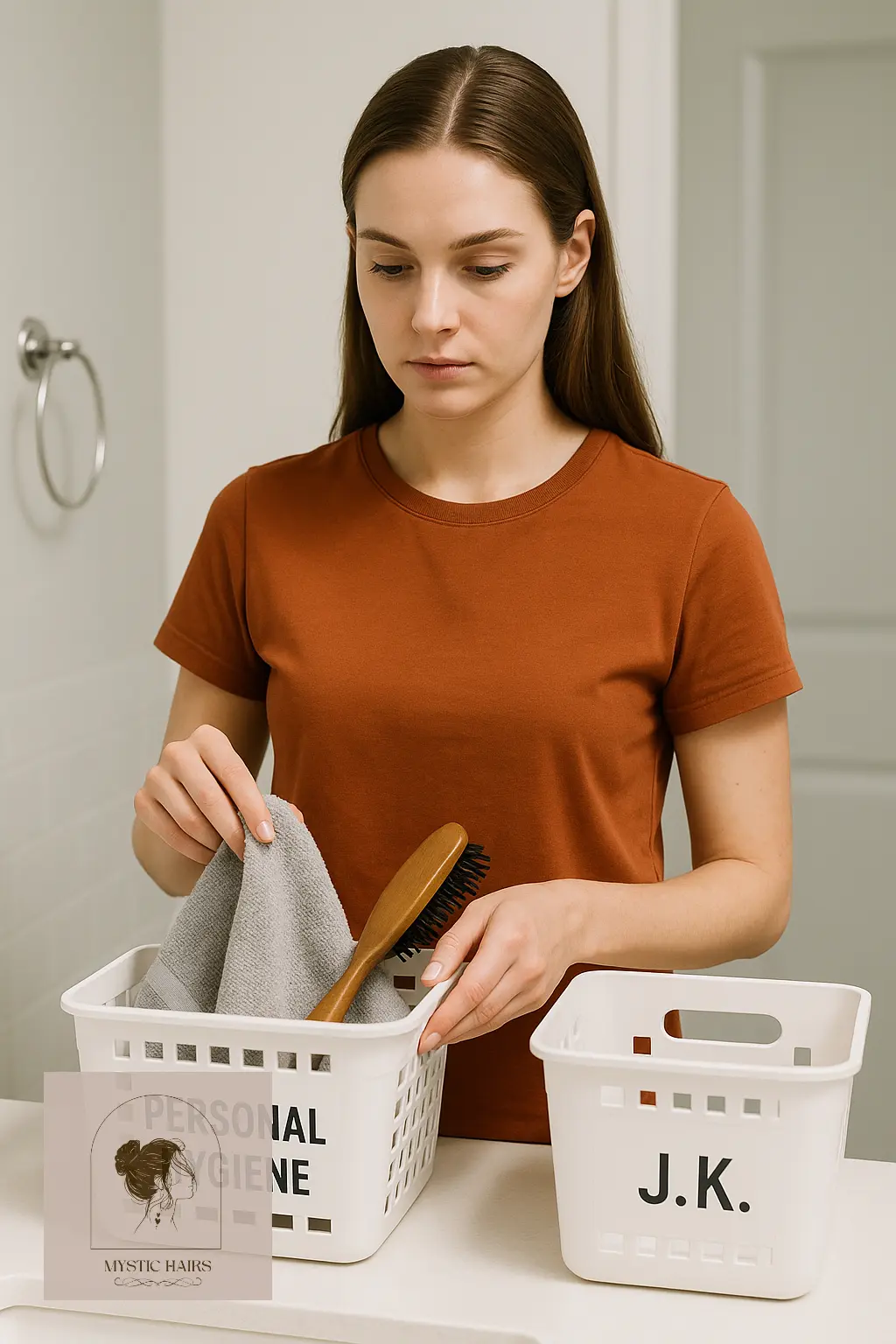
Choose Lightweight, Non-Oily Styling Products
Styling products that are too greasy or heavy can block pores on your scalp, trapping dead skin and oil. This creates an environment where dandruff-causing fungi thrive. Choose lightweight styling products like sprays or serums that won’t build up excessively.
Also, wash out styling products at the end of the day instead of leaving them overnight. This simple habit helps your scalp stay clean and balanced.
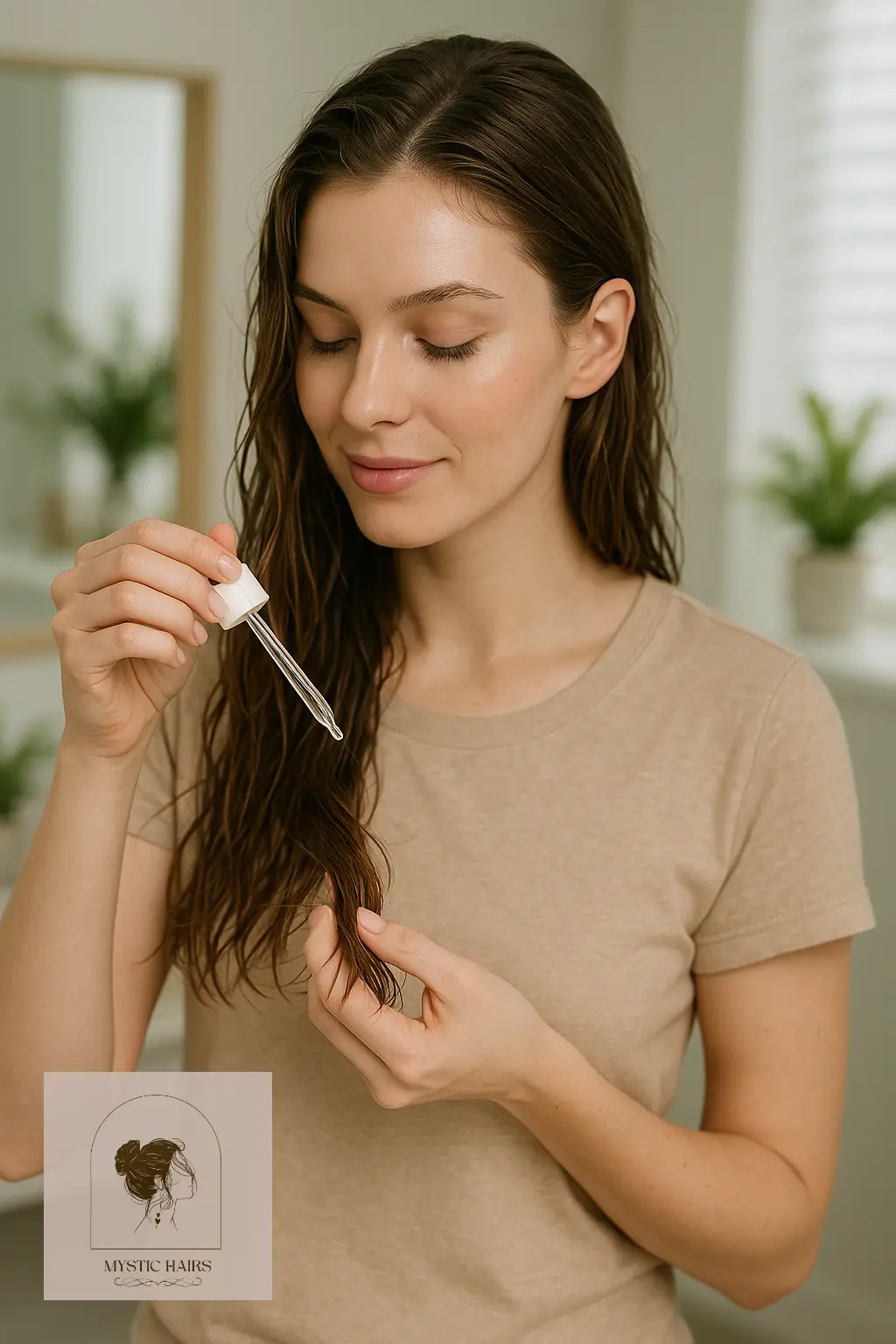
Try Tea Tree Oil as a Natural Remedy
Tea tree oil is known for its antifungal and antibacterial properties, making it one of the best natural remedies for dandruff. Add a few drops of tea tree oil to your regular shampoo, or mix it with a carrier oil like coconut oil and massage it into your scalp.
Using tea tree oil consistently can help reduce fungal activity on the scalp, soothe itching, and minimize flaking. However, always dilute it before applying to avoid irritation.
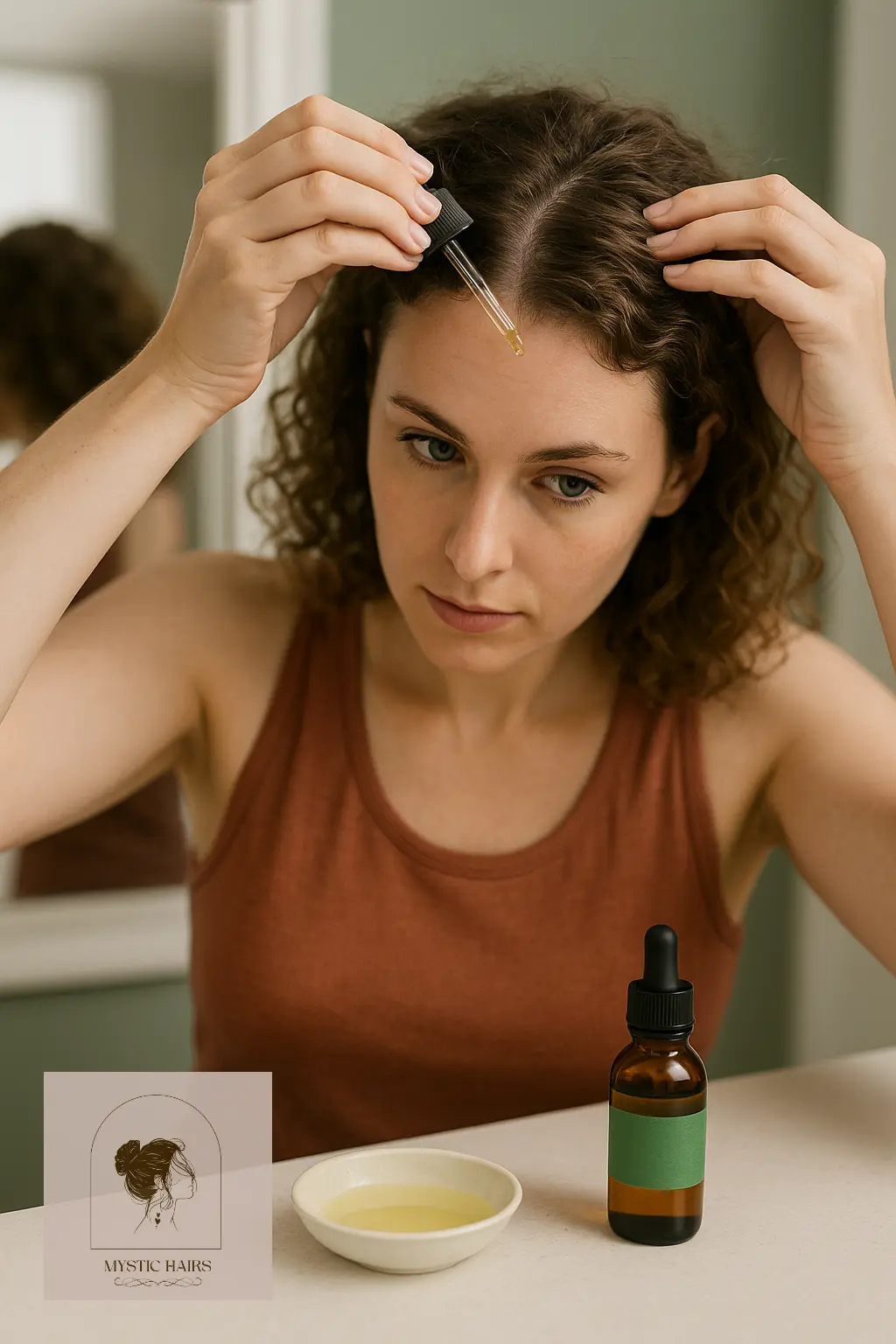
Protect Your Scalp from Extreme Weather
Cold, dry air in winter and hot, humid weather in summer can aggravate dandruff. In winter, indoor heating can make the scalp very dry, while in summer, sweat and heat can increase oiliness and fungal activity. Wear hats or scarves when outdoors and adjust your scalp care routine to the season.
In winter, use more hydrating products, and in summer, focus on cleansing away sweat and buildup. Seasonal care ensures that your scalp stays in balance year-round.

Healthy hair starts at the scalp — after managing dandruff, see how to support growth with how to grow your hair faster.
Brush Your Hair Regularly to Distribute Natural Oils
Brushing your hair daily, using a soft-bristled brush, helps distribute the scalp’s natural oils evenly from the roots to the ends. This not only conditions the hair but also prevents oil and skin cells from accumulating in one area of the scalp, which can lead to more visible flakes. By gently brushing, you also improve blood circulation, which supports a healthy scalp environment and reduces irritation over time.
Regular brushing also helps remove loose flakes before they settle on clothing, while keeping your hair looking neat and polished. It’s a simple but important step to add to your dandruff control routine, particularly if your scalp tends to get dry in certain weather conditions.
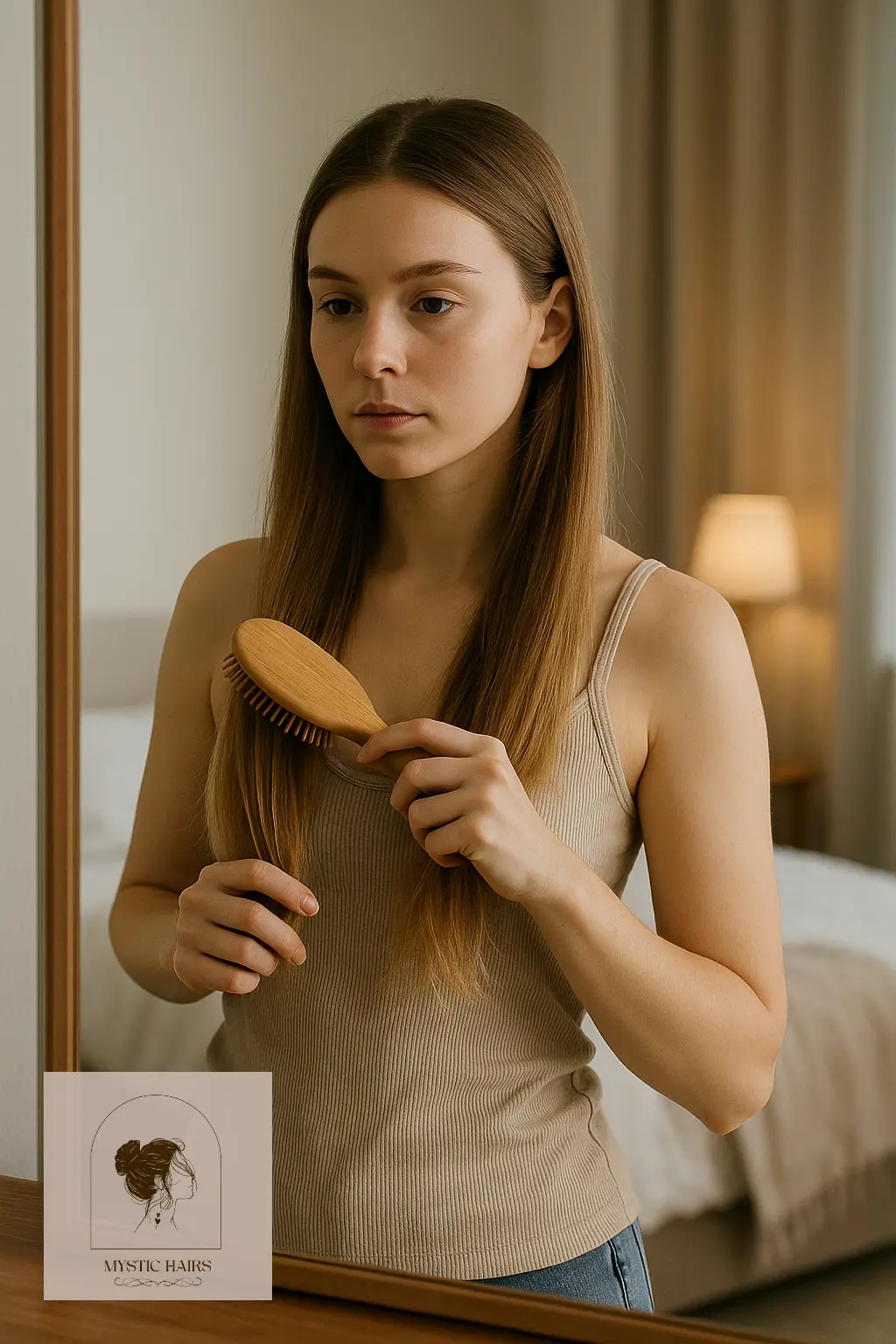
Consult a Dermatologist for Persistent Dandruff
If your dandruff doesn’t improve despite using anti-dandruff shampoos and home remedies, it may be time to see a dermatologist. Persistent dandruff could be a sign of seborrheic dermatitis, psoriasis, eczema, or even a fungal infection that requires prescription-strength treatment.
A dermatologist can examine your scalp, recommend medicated shampoos or topical treatments, and identify any underlying issues. Professional guidance ensures you use the right dandruff treatment plan for your specific needs rather than relying on trial and error with over-the-counter products.
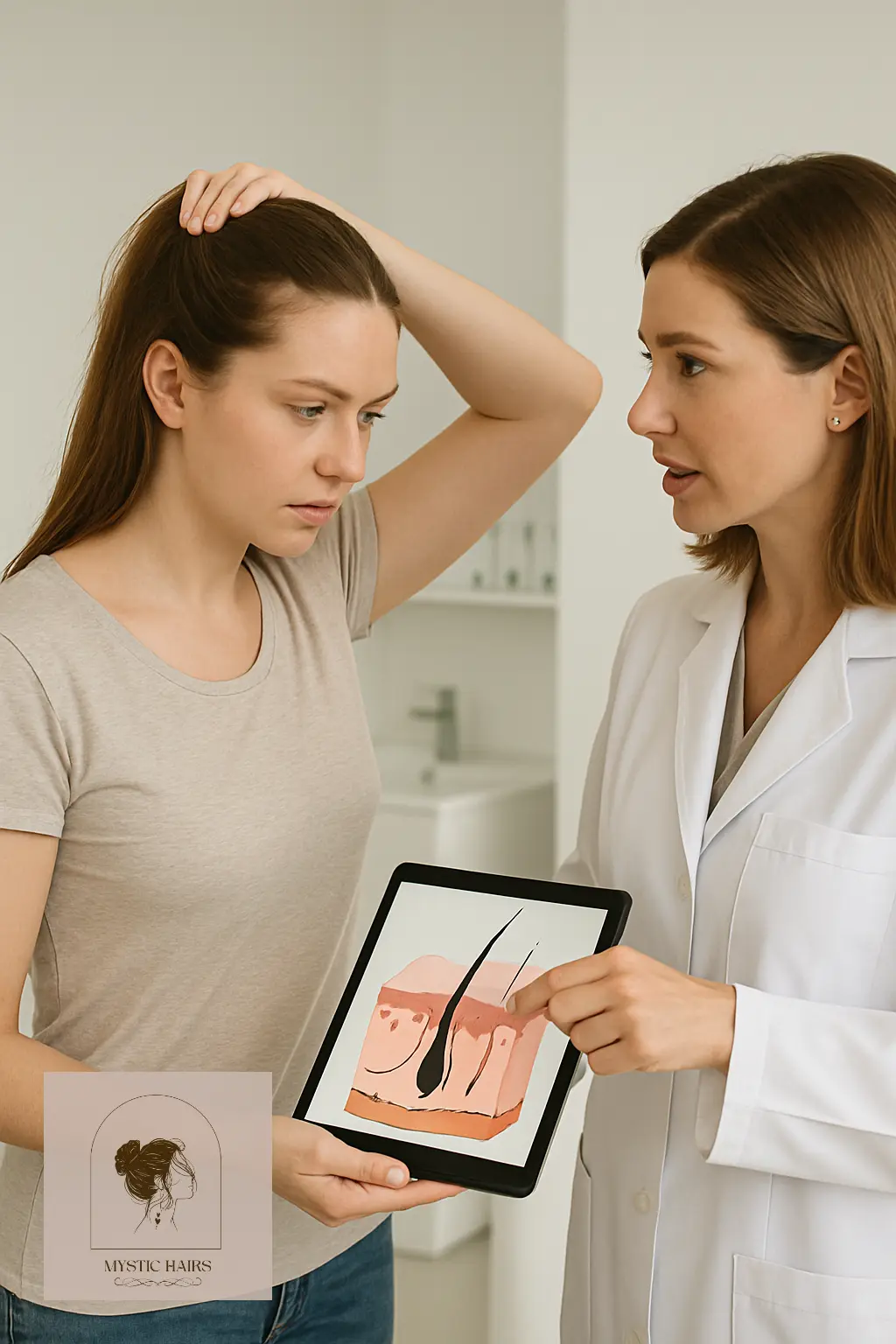
Add Probiotics to Your Daily Diet
An often-overlooked factor in dandruff management is gut health. Research shows that an imbalance in gut bacteria can influence skin and scalp health, sometimes leading to inflammation and flaking. Adding probiotics—through yogurt, kefir, kimchi, sauerkraut, or supplements—can help improve digestion, reduce inflammation, and indirectly promote a healthy scalp.
Probiotics work by balancing the immune system and reducing the body’s inflammatory response. Over time, this reduces the severity of dandruff flare-ups and creates a more stable environment for scalp healing from within.
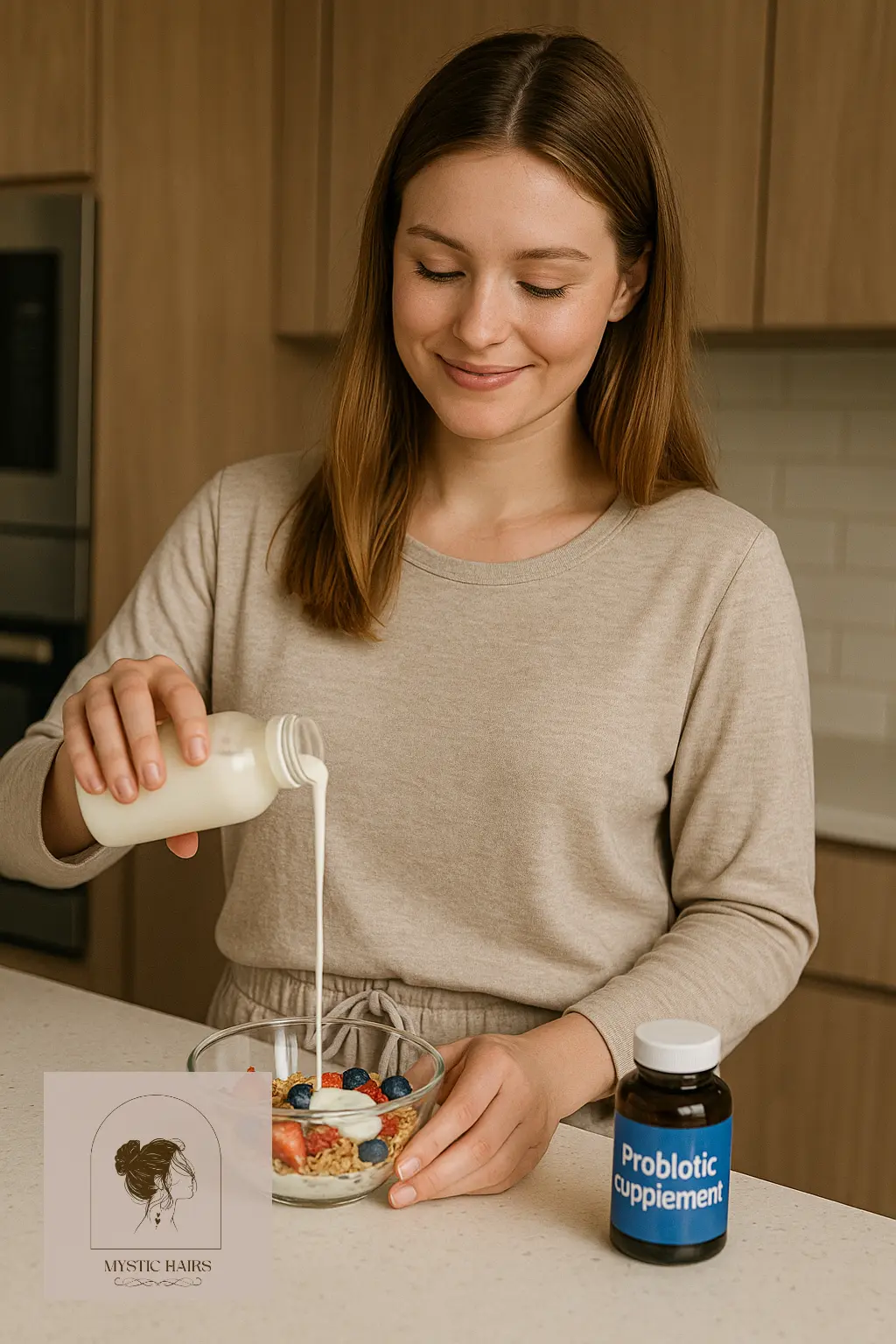
Use Aloe Vera Gel for a Cooling Effect
Aloe vera is widely known for its soothing, hydrating, and anti-inflammatory properties, making it one of the best natural remedies for dandruff. Applying fresh aloe vera gel to the scalp 20 to 30 minutes before washing your hair can calm irritation, reduce itchiness, and moisturize dry patches.
This cooling treatment can be done once or twice a week as part of your scalp care routine. Aloe vera is especially helpful for those with a sensitive scalp because it is gentle and natural, yet effective at reducing visible flakes and discomfort.
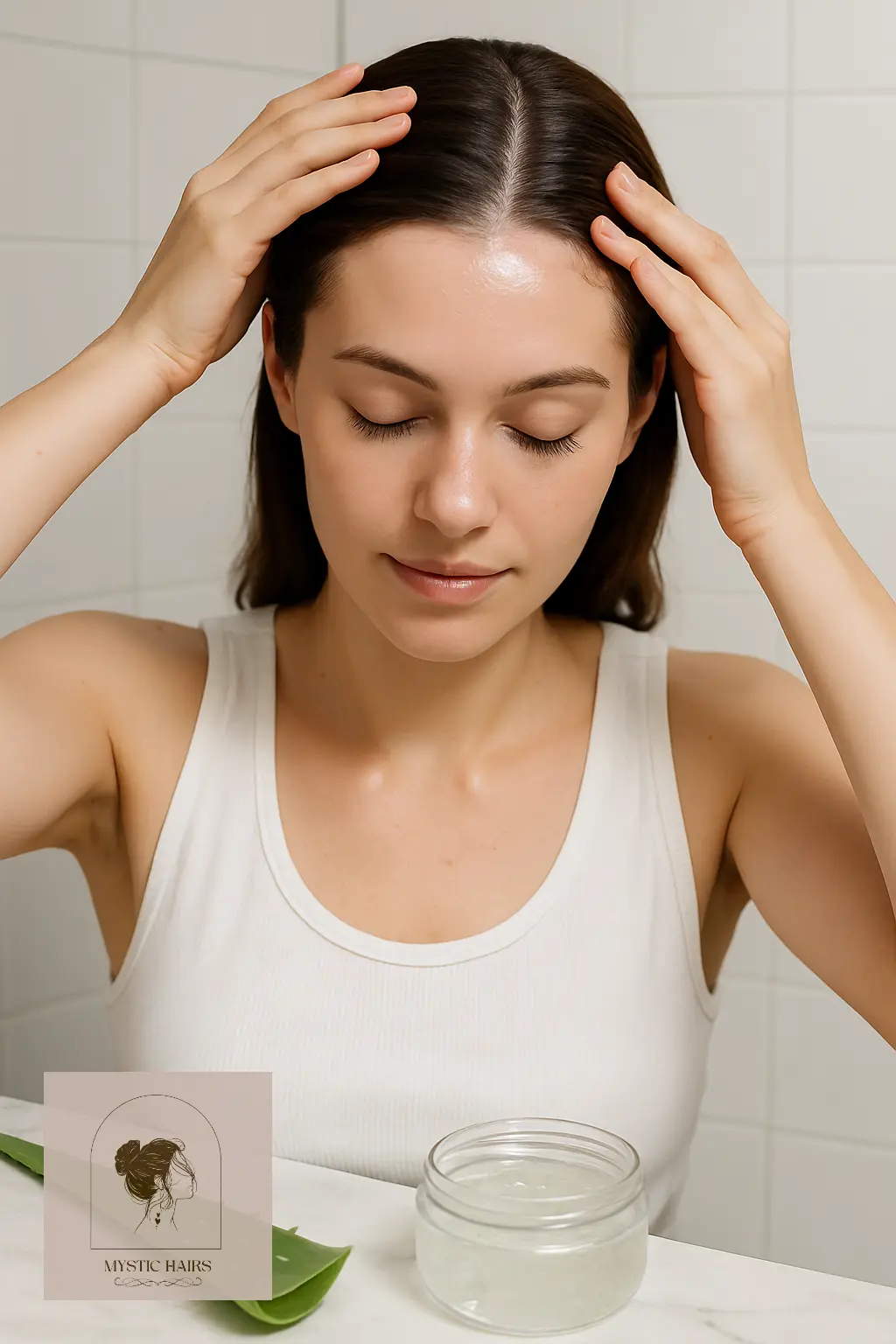
Worried about style while treating dandruff? Try these low-maintenance and chic brown bob hairstyles that keep your scalp in focus.
Stay Consistent with Your Dandruff Care Routine
When learning how to get rid of dandruff, consistency is key. It takes time for your scalp to adjust to new products, diets, or routines. Commit to using anti-dandruff shampoo, scalp scrubs, and home remedies regularly for several weeks before expecting results.
Think of your healthy scalp care as a long-term process rather than a quick fix. Over time, these habits will rebalance your scalp, reduce flakes, and leave your hair looking clean, shiny, and refreshed. With patience and persistence, even stubborn dandruff can be managed effectively.
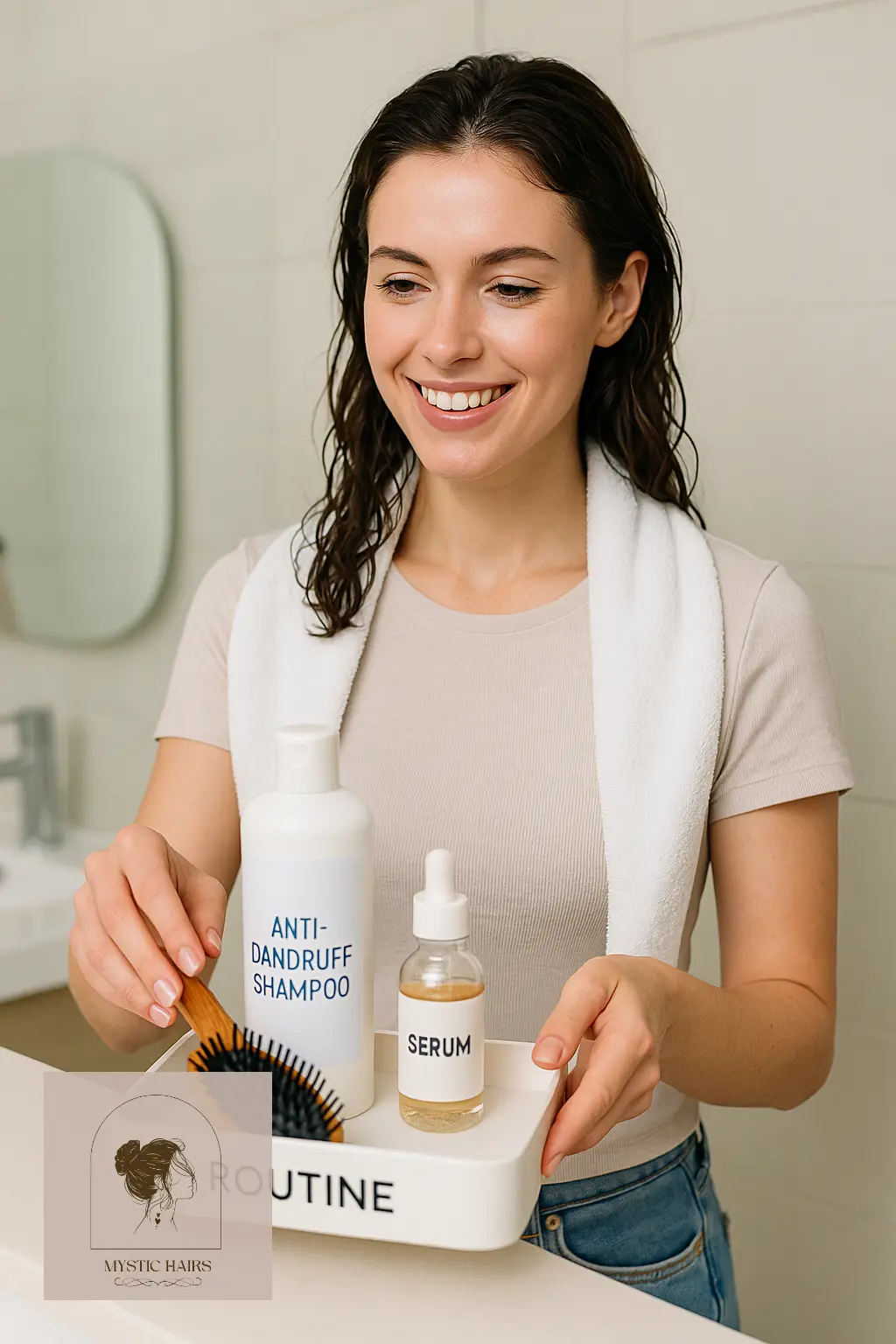
FAQs
Final Note
Understanding how to get rid of dandruff involves identifying the root cause of flakes and creating a consistent, gentle, and targeted routine. Combining anti-dandruff shampoos, regular scalp exfoliation, natural treatments like aloe vera and tea tree oil, a balanced diet, and stress management leads to healthier, flake-free hair.
Dandruff doesn’t have to be a lifelong problem. With a thoughtful approach that focuses on both scalp health and overall well-being, you can achieve a clear, balanced, and comfortable scalp. Whether through medical care, lifestyle changes, or home remedies for dandruff, a combination of these steps will bring lasting results.

Aria Blake is a beauty writer and hairstyle curator passionate about empowering women through timeless trends and modern haircare. With a deep love for natural textures and creative styling, Aria blends expert tips with real-life inspiration to help you look and feel your best—every single day. When she’s not writing for MysticHairs.com, you’ll find her exploring protective styles, sipping herbal tea, or pinning dreamy looks for your next hair glow-up.



